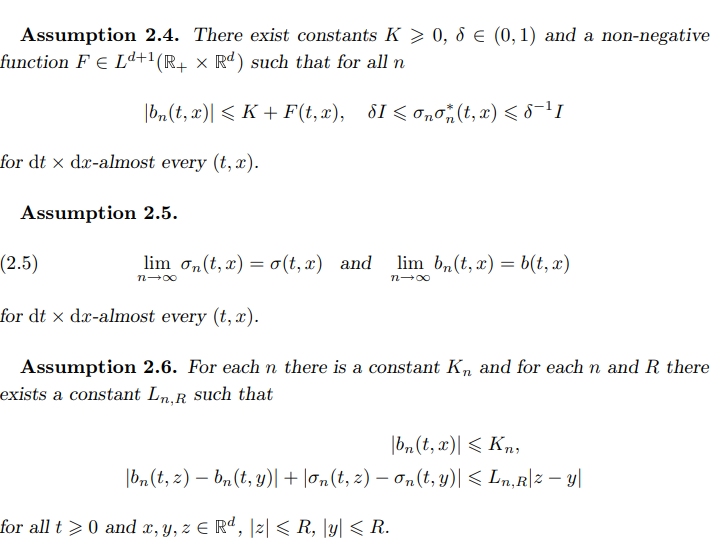Suppose $X, X^{\varepsilon}$, for $\varepsilon > 0$ are real valued stochastic processes satisfying the following SDE on $[0, T]$:
$dX = \mu(t, X_t) dt + \sigma (t, X_t) dW_t,$
$dX^{\varepsilon} = \mu(t, X^{\varepsilon}_t) dt + \sigma_{\varepsilon} (t, X^{\varepsilon}_t) dW_t,$
$X_0 = X^{\varepsilon}_0 = x_0$, for some $x_0 \in \mathbb R$.
with $\mu, \sigma, \sigma_{\varepsilon}$ uniformly bounded and Lipschitz continuous with uniform Lipschitz constant.
Suppose it is known that for every $\varepsilon > 0$, $\sigma(t, X_t) = \sigma_{\varepsilon} (t, X^{\varepsilon}_t)$ for all $t$ in a set of Lebesgue measure $T - \varepsilon$, where the set may depend on the random outcome $\omega$.
Question: Is it true that $X^{\varepsilon} \to X$ uniformly in $t$ in probability?
That is, $\lim_{\varepsilon \to 0+} \mathbb P(\sup_{t \in [0, T]} |X_t - X^{\varepsilon}_t| > \delta) = 0$ for all $\delta > 0$.

